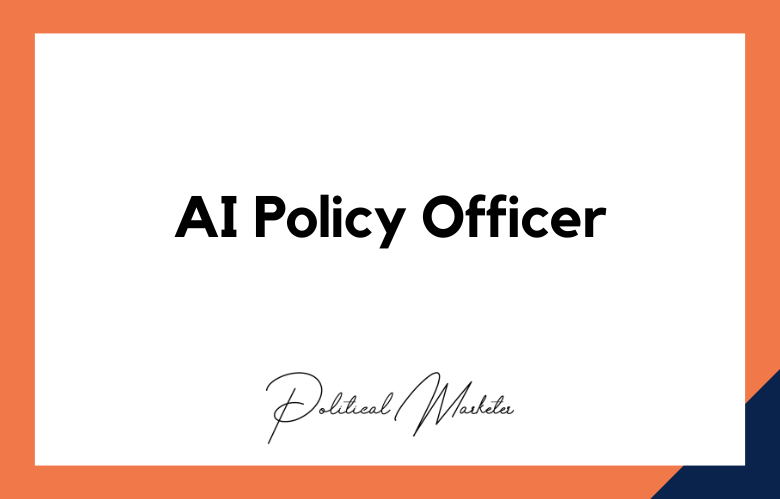Political Machine Learning Operations (MLOps) is a rapidly emerging field that combines political science, machine learning, and information technology. It involves using machine learning techniques to analyze and understand political data and develop AI systems supporting political decision-making.
Political MLOps applies the principles of MLOps, a set of practices that aim to streamline the development, deployment, and monitoring of machine learning models in production environments. However, in politics, the focus is on applying these practices to models and systems designed to provide insights and support decision-making in the political realm.
What is MLOps?
-
Model Versioning: Tracking different versions of the model as it evolves.
-
Model Monitoring: Ensuring that the models perform well and alert when they degrade.
-
Experiment Management: Keeping track of experiments, such as hyperparameter tuning, to identify the best production model.
-
Model Serving: Deploying models in production and ensuring they are integrated with other systems.
What is Political MLOps?
Political MLOps, or Political Machine Learning Operations, is the application of machine learning and information technology to the political domain. It involves developing and deploying machine learning models and systems to support political decision-making, analysis, and forecasting.
Political MLOps combines machine learning principles with political science and data analysis to create AI systems that can help political leaders, organizations, and stakeholders better understand and navigate the complex world of politics. This can include everything from predicting election outcomes to analyzing public opinion and sentiment and assessing political risk.
Overall, Political MLOps represents an exciting new frontier in the intersection of politics and technology, with the potential to transform the way we make decisions, analyze political data, and understand the dynamics of political systems.
Democratizing Democracy: Unraveling Political MLOps
Democratizing democracy through Political MLOps refers to the use of machine learning and information technology to make political processes more transparent, inclusive, and responsive to the needs and preferences of citizens. By leveraging the power of data and AI, it is possible to create political systems that are more representative, accountable, and effective.
One of the critical ways Political MLOps can help democratize democracy is by providing citizens with access to more accurate and actionable information about political processes and decision-making. For example, AI systems can analyze large amounts of political data, such as legislative records, voting patterns, and public sentiment, to provide insights into how political systems function and where improvements can be made.
The Power of Data: A Deep Dive into Political MLOps
The world of politics is undergoing a digital transformation, with technology playing an increasingly important role in shaping the political landscape. At the heart of this transformation is the field of Political MLOps, which uses data and machine learning techniques to provide a deeper understanding of political systems, public opinion, and decision-making.
Political MLOps represents a new frontier in using technology to support democracy. By leveraging the power of data and machine learning, political actors can gain insights into the opinions and behaviors of citizens and use these insights to make more informed and responsive policy decisions.
Supercharging Politics with MLOps: Exploring the Future
Political Machine Learning Operations (MLOps) has the potential to supercharge politics in the coming years, providing new tools and insights for politicians, activists, and citizens alike.
We can expect to see more sophisticated and accurate political forecasting models, which use data from social media, news sources, and other online platforms to predict election outcomes, policy impacts, and other political events. These models can consider various factors, including demographics, voting patterns, and public sentiment, to provide more reliable and actionable insights.
The Rise of Political MLOps: Revolutionizing Governance
Political MLOps is poised to revolutionize governance by providing political leaders, activists, and citizens with new tools and insights for understanding and shaping political systems.
One of the key ways in which Political MLOps can revolutionize governance is by enabling more effective and responsive policymaking. By providing real-time insights into citizen opinions and behaviors, political leaders can make more informed decisions and develop policies better tailored to different communities’ needs.
For example, MLOps can help identify emerging issues and trends that need to be addressed, such as rising poverty levels, inequality, or social unrest. This can help political leaders to develop more effective and targeted policy responses and to monitor the impact of their decisions over time.
Unlocking Political Potential: Understanding MLOps in Politics
Political Machine Learning Operations (MLOps) represents a profound shift in how we understand and engage with politics. By leveraging the power of data and machine learning, it is possible to unlock new levels of political potential, opening up new avenues for decision-making, analysis, and engagement.
One of the critical benefits of Political MLOps is its ability to provide new insights into the opinions and behaviors of citizens. By analyzing data from social media, news sources, and other online platforms, political actors can better understand the issues important to different groups and tailor their messages and actions accordingly.
MLOps: The Game Changer in the Political Landscape
Political Machine Learning Operations (MLOps) is already beginning to change the political landscape, providing new tools and insights for political actors and citizens alike.
One of the critical ways MLOps is changing the political landscape is by increasing the speed and efficiency of decision-making. With access to real-time data and advanced AI models, political leaders can respond more quickly to emerging issues and trends and develop policies that are better tailored to the needs of different communities.
MLOps can also help to increase transparency and accountability in politics. Using AI to monitor political decision-making, track campaign financing, and detect corruption or misconduct, political leaders can build trust in political institutions and ensure they act in citizens’ best interests.
From Machine Learning to Machine Governance: Political MLOps
As the use of machine learning in politics continues to grow, we may see the emergence of a new form of governance known as “machine governance.”
Machine governance refers to using algorithms and data to make political decisions and manage government services rather than relying solely on human judgment and expertise. This could involve using AI systems to automate administrative tasks, optimize resource allocation, and develop policies based on data-driven insights.
The potential benefits of machine governance are significant. For example, it could help improve government services’ efficiency and effectiveness, reducing costs and improving service delivery. It could also help to eliminate human biases and errors in decision-making, leading to more equitable and fair outcomes.
-
Automating Administrative Tasks: Machine learning can automate routine tasks such as processing permits, issuing licenses, or responding to citizen inquiries, freeing government employees to focus on more complex tasks.
-
Analyzing Policy Impact: Machine learning can analyze large datasets and predict the potential impact of different policies on various outcomes, such as economic growth or public health.
-
Monitoring Corruption: Machine learning can detect corruption patterns, such as fraudulent spending or conflicts of interest, by analyzing financial data and public records.
-
Optimizing Resource Allocation: Machine learning can help governments maximize the allocation of resources, such as budgeting or personnel allocation, based on historical data and predicted future needs.
-
Engaging Citizens: Machine learning can analyze citizen feedback, such as surveys or social media data, to inform policy decisions and improve citizen engagement.
Conclusion:
Political MLOps is a cutting-edge field that combines machine learning and information technology to provide insights and support decision-making in the political realm. By applying the principles of MLOps to political data and models, researchers and practitioners can develop more accurate, reliable, and effective AI systems that can help political leaders, organizations, and stakeholders make better-informed decisions.
Political MLOps has the potential to revolutionize the way we understand and navigate the complex world of politics, providing new tools and insights that can help us address some of the most pressing political challenges of our time. As the field continues to evolve and mature, it will likely play an increasingly important role in shaping the future of politics and governance.
Call: +91 9848321284
Email: [email protected]










